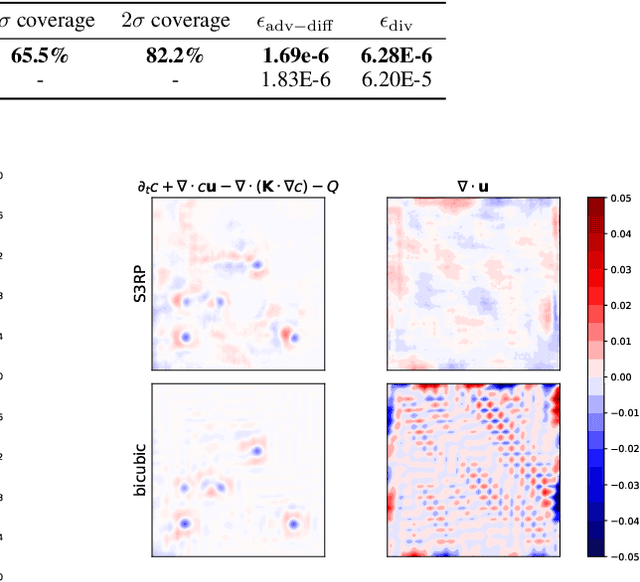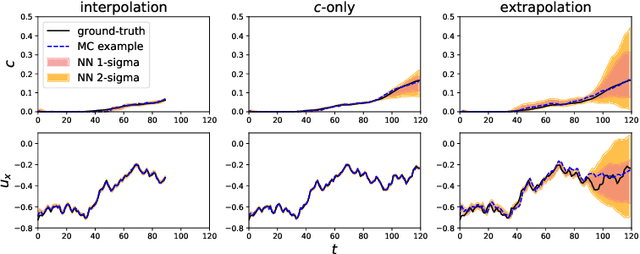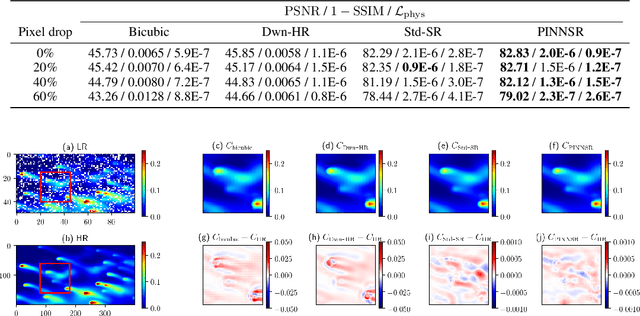Chulin Wang
S3RP: Self-Supervised Super-Resolution and Prediction for Advection-Diffusion Process
Nov 08, 2021



Abstract:We present a super-resolution model for an advection-diffusion process with limited information. While most of the super-resolution models assume high-resolution (HR) ground-truth data in the training, in many cases such HR dataset is not readily accessible. Here, we show that a Recurrent Convolutional Network trained with physics-based regularizations is able to reconstruct the HR information without having the HR ground-truth data. Moreover, considering the ill-posed nature of a super-resolution problem, we employ the Recurrent Wasserstein Autoencoder to model the uncertainty.
Physics-Informed Neural Network Super Resolution for Advection-Diffusion Models
Nov 04, 2020



Abstract:Physics-informed neural networks (NN) are an emerging technique to improve spatial resolution and enforce physical consistency of data from physics models or satellite observations. A super-resolution (SR) technique is explored to reconstruct high-resolution images ($4\times$) from lower resolution images in an advection-diffusion model of atmospheric pollution plumes. SR performance is generally increased when the advection-diffusion equation constrains the NN in addition to conventional pixel-based constraints. The ability of SR techniques to also reconstruct missing data is investigated by randomly removing image pixels from the simulations and allowing the system to learn the content of missing data. Improvements in S/N of $11\%$ are demonstrated when physics equations are included in SR with $40\%$ pixel loss. Physics-informed NNs accurately reconstruct corrupted images and generate better results compared to the standard SR approaches.
 Add to Chrome
Add to Chrome Add to Firefox
Add to Firefox Add to Edge
Add to Edge